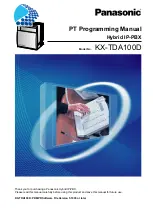
19. Analogue sensor module
117
19. Analogue sensor module
Description
The analogue sensor module allows you to connect up to three external analogue sensors to the Niko Home Control
installation. These sensors must be suitable for applications with a safety extra-low voltage (SELV), such as sensors for
measuring sunlight, wind, rain, CO
2
, humidity, or temperature. In function of the values measured, applications such as
sun blinds, roll-down shutters, and lights can be operated automatically.
Overview
Operation
When a connected sensor is activated, the corresponding input will receive a signal between 0 and 10 V and the module
will forward this value and the address to the controller, which then activates one or several pre-programmed actions.
Each value corresponding to a certain input voltage is set via the programming software.
Activation of a connected sensor can be simulated by pressing the button. The real input will in that case be deactivated
for two minutes.
550-00230
A.
Screw terminals 1-3
Connect one sensor with an output voltage between
0 and 10 V per screw terminal.
B.
Screw terminal COM
Common terminal used for connecting the mass of
the sensors.
C.
Sliding contact
The sliding contact is used for connecting the next
module, which means that the bus and the power
supply module are then also interconnected.
D.
CHANNEL LEDs
One LED per channel. The CHANNEL LED lights up
in TEST mode when the input voltage exceeds 1 V.
E.
Buttons 1-3
These buttons are used for simulating the activation
of a sensor.
F.
ADDRESS button 1
The function of this button is twofold. In addition to
the function described under “E” this button is used
for transmitting the unique address of the module
during the addressing phase while programming the
installation.
G.
STATUS LED
The STATUS LED lights up in TEST mode when the
module is connected correctly and is functioning
properly. If an error occurs, the LED will blink to
indicate an error code.
B
G
F
D
E
A
C
















































